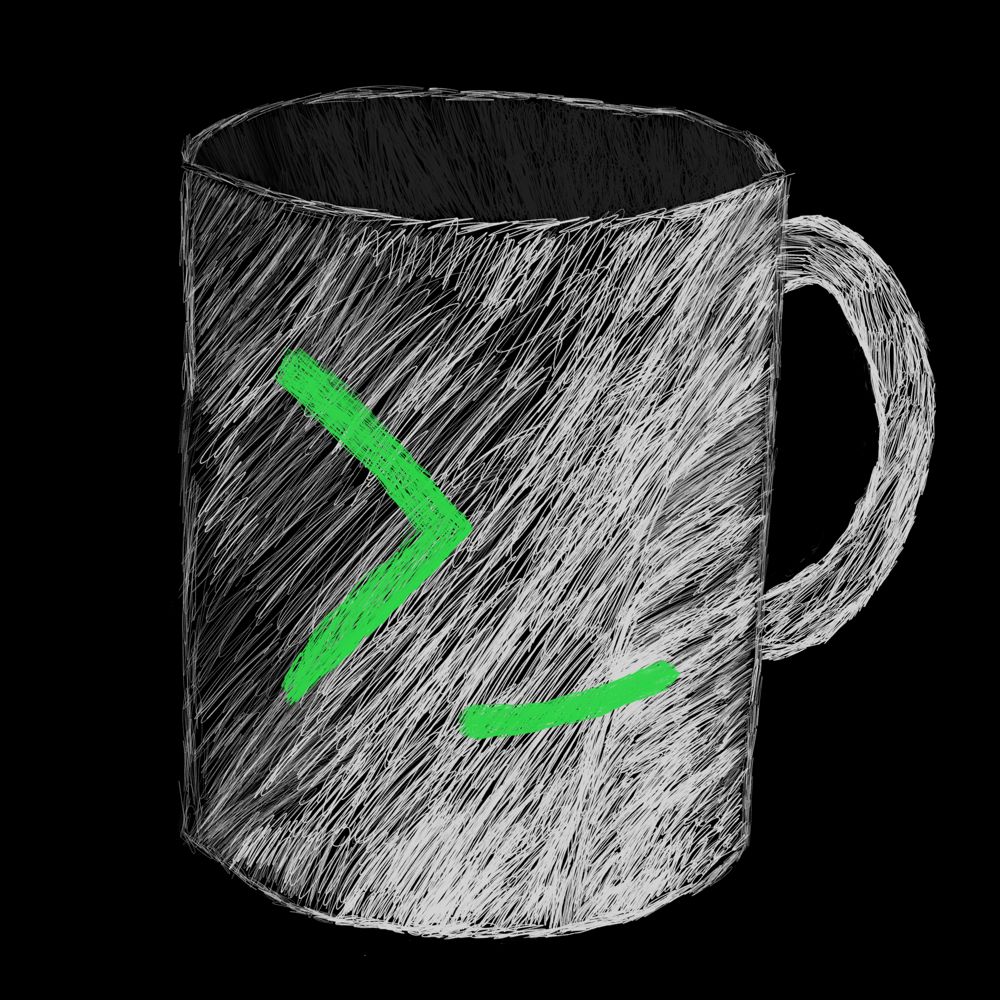For me its honestly a ton of my work software (digital forensics), shit is too niche to be replaced by good FOSS options. Cellebrite, Magnet Axiom, etc. Autopsy is great and free and has a linux version but it simply cannot get the same level of data without a pretty nutty level of custom code.
And the biggest side effect of this is FUCKING WINDOWS. God I would replace this nightmare OS in a heartbeat if the aforementioned work software would make linux compatible versions. We have legitimately wasted 10k hours dealing with windows bullshit that would not be a problem in linux. Though im sure linux would take a different 10k for its own problems.
What about you guys? Doesn’t have to be work related, thats just the thorn in my side right now.
deleted by creator
Facebook messenger bc of my waterpolo teammates, discord, google maps bc im horrible at using maps and other apps are just too hard for me lol. Spotify bc i have all my liked songs and albums on it and im too lazy to migrate. On the desktop side everything i use is foss basically.
What FOSS Map apps have you tried?:)
Osmand and orgabic maps. Google maps just feels like home to me.
Autocad. This is the main (only?) reason I continue to use Windows. Professional 2d cad for architectural drafting has been lacking in Linux for a long time. There are a few commercial alternatives, Bricscad being the big one, but due to (cheap) grandfathered licensing cost for Autocad, I"ve been unable to push for a purchase. Qcad (professional) was another option I looked at but, despite being a good program at an amazing cost, had enough differences in work flow that I couldn’t find a good way to integrate it into a shared workflow.
Every once in a while I switch to Linux and either run a W10 vm or RDP just to work around the issue but, inevitably, get frustrated with performance. Freecad and Blender both seem to be working on the problem -but- from a BIM perspective, not detailed drafting . . .
Tried a bit of bricscad, have to say it’s wonderful just not using autodesk evil ooze. Maybe you can try emailing them so they can give you a discount?
Anyway, here with inventor, a horrible choice I’m stuck with
I hant heard of this before … It has Ubuntu and opensuse as supported plattform, and a one-time buy option?! This sounds amazing!
Yeah, it’s the first alternative I like. It’s not foss but we really really suck at foss anyway
Im always rooting for FOSS alternatives (like inkscape just got a shape builer tool in 1.3, and now i can finally abandon Illustrator for good!)
I wish freeCAD was usable professinally, but for now it’s too convoluted and prone to crashing; and so ill take anything for a testrun that just supports linux natively.
Mechanical CAD is very niche and simultaneously complex to execute… Its just not ideal for hobby development
Yeah, I was hoping freecad would get a bigger push after Autodesk screwed people over with fusion. Still it’s going, slow but going
So much this! And with the connectivity between Rhino/Archivad, Revit and TwinMotion I fear a solution is far away. Which surprises me because all of our professional software works fine natively on Mac, which is also Unix based. Isn’t there an easy way to emulate from that direction?
What’s wrong with the Arch workbench in FreeCAD?
Ableton Live, Presonus Studio One and about a million VST plugins. Digital audio workstations and software instruments/effects are an area where open-source has made only limited inroads. Ardour was decent last time I used it, but since I got into Ableton Live with Push it’s hard to go back to other things.
100% this.
It’s not FOSS or free, but Reaper at least has a native Linux version, and it’s a great DAW.
Yes, credit to Reaper. It’s excellent and amazingly affordable compared to other DAWs.
Very much the nice price
Here it is. Mostly the sunk cost of VST products with miserable DRM. It seems like it can be done, but I have zero interest in mixing that headache into a creative space.
I haven’t found a FOSS Ableton/Bitwig replacement either, but the FOSS audio world has many wonderful synths a effects.
Synths? Effects??
https://www.bespokesynth.com/ https://github.com/DISTRHO/Cardinal
I’ll leave these here :)
Zrythm is close, but definitely not there yet
Honestly, I haven’t found anything that can replace Google Maps for route planning with public transportation. I really wish for crowdsourced timetables hosted on OSM…
Have you checked out Transportr btw?
Oh yeah, I did try it a year or so ago. I’m giving it another try but it still doesn’t work. I’ll try to get involved, thanks for the suggestion.
You can use Gmaps WV to use GMaps without an Google account at least
Windows. Linux as a desktop just isn’t stable enough for me. Too many bugs with GUI settings. I don’t want to look up multiple ways to do things just to be eventually kicked into the command line and hopefully run the right commands to get some basic settings working. I’d love for Linux to be more stable and to have a cohesive GUI.
On the more cosmetic side running KDE apps in Gnome or running Gnome apps in KDE is just a further huge mess that can essentially ruin how your system looks which could potentially soft-lock you on screens that you can’t read. The DE on Linux just should do the Windows and Mac thing of requiring hooks to allow them to set important color and theme settings.
Windows is terrible but it’s still leagues above Linux in some real basic ways. Linux is going to need to step it up if it ever wants a serious “year of the Linux desktop” to happen before the death of the desktop computer altogether.
If you haven’t checked out Pop!_OS I’d recommend giving it a try. While I’m using a system76 laptop so they guarantee hardware compatibility, it’s been one of the smoothest and most functional DE/guis I’ve used. Ive never had to resort to a command line* and aaalllmost everything you’d expect to find exists in the gui.
*caveat. Except for some really esoteric problems, which are usually a result of my own tinerking
Pop os has constantly been recommended to me. I’m certainly putting it on the list to try this year. I’ll probably load up a ventoy USB with a ton of oses and report back eventually.
I’m curious what “basic settings” require you to touch the command line. My elderly mum and dad - who aren’t very tech savvy btw - have been running Linux for nearly a decade now (Xubuntu previously, now Zorin) and haven’t had any major issues in all this time. Admittedly their requirements are pretty basic, but they do all your tasks a typical basic PC user would - surf the web, check emails, work on documents, print and scan stuff, backup files from their phones/USB drives, video chat etc. In fact, the entire reason why I got them onto Linux in the first place was because Windows wasn’t really stable for them - I got tired of having to troubleshoot or reinstall Windows for them all the time. They’d complain about how an update broke something, or how the system was becoming slower etc. But no such issues with Linux. Occasionally I might get a call asking “how do I do this”, but after a few years, these support calls have all but vanished. Linux “just works” for them, it’s rock solid, the GUI is intuitive (at least for Xububtu/Zorin) and they never had to touch the command line.
The best example that comes to mind is mouse acceleration. Fedora has a setting in the GUI for it but it didn’t work. So I literally had to set it in my bashrc to get it to work.
Another issue I saw was os theme being multiple settings depending on gtk or qt apps.
Another issue is video card driver. I’ve had Ubuntu auto update and brick my install, dropping me down to grub because grub was set to use my Nvidia proprietary drivers but the kernel module wasn’t installed despite me setting it in the GUI to use the Nvidia drivers.
Multiple issues with peripherals and having to install a random GitHub Python script for watcom drivers or Xbox controllers.
Oh, also vpn settings on the os level didn’t work on debian recently. I had to configure it via command line.
In my experience most problems with linux are at the intermediate level, i.e. things like setting up university/work vpn, installing games (with wine), getting used to different applications for office stuff. This is all stuff that many people have to do that can be hard to achieve if you only have guides for windows/mac
Basically the longstanding issue of having “total control”. There needs to be a middle ground between having total control and being forced to use it (while for the most part having no limitations but are either not very straightforward or are far too straightforward) and being given the illusion of control (while for the most part not having limitations until you do, then you can’t get around them).
The Steam Deck has been the most accessible Linux desktop and it still has been frustrating at times.
On my phone: a FOSS “find-my-phone” function
On my computer: a FOSS way to access Teams for work. Just give me a Weechat plugin please.
KDE Connect can find your phone, as long as it’s on the same network (basically, only at home). It’s not perfect but it’s something.
Look at owntrack. Send position data to your own server
That’s an interesting idea
Access Teams? Do you need anything more than opening the Teams web app in a browser?
That is what I do…but I work for 4 companies that all use Teams and it would be nice to have all the profiles in one place.
Ah yes, maybe you’re in IT like me. 😆
Firefox Containers help, I have a separate container for each client. Actually I’ve been using Arc Browser more recently, it’s a great browser but not FOSS.
I’ve done that before. I work in higher education, actually. None of my employers actually need Teams. I don’t know why we use it. All important info is sent via email.
Oh, and you can do that even in the official application? I thought it was impossible to be logged into multiple Teams accounts at the same time! (That was one of the reasons I was using Teas in a browser, being able to open another instance in a private window.) Or did they finally fix that, at least?
findmydevice on fdroid
Mechanical CAD. Something like SolidWorks or Fusion 360.
FreeCAD just isn’t there yet. They’re still struggling with the topological naming problem. However, Blender was like this in the field of 3D animations. Now it’s the standard. That gives me hope for FreeCAD. Anyway, MCAD is very important. I’m learning modern C++ and the FreeCAD code base in order to contribute.
I also wish there was a better CAD kernel than OpenCASCADE.
I have been experimenting with using Inkscape and OpenSCAD for 3d modeling, and it seems to work for what I do, but I know quite a few people prefer a more graphical interface than OpenSCAD.
OpenSCAD is a good take on CAD. My primary workflow is also based on plaintext (text configs, code, org-mode, latex, etc) and keyboard (no mouse). It’s easy to manage and back it up with version control tools like git. However, there are a few fields that I feel are inherently visual and need a very interactive tool. CAD is one of them. Others are 3D animation and art.
Reason. It’s got a unique workflow that is hard to break from. I even tried Renoise, but it’s hard to switch.
I really wish that you could install a clean AOSP on any Android phone, just like you can install FOSS OS’es on most laptops.
Last Android phone I bought had a few strange “vendor apps” (one with Chinese characters only in its name), and if I disabled Google Play Services the SMS app would go crazy and show error messages (as notifications) all the time. To add, “adb uninstall” was blocked by the vendor and there was no unofficial ROM.
I prefer small phones, so the market of phones is really really small for me :( Otherwise, I would have bought a Fairphone.
I want to jump to linux, but the prospect of starting from scratch on a new OS (or even a reinstall of windows) is just not feasible right now.
Tl;Dr: it’s not as hard as you think.
I just jumped over to Linux in June. I booted into the Debian Live USB with KDE Plasma as the desktop environment. In general, make sure you have an Ethernet connection available for the first install. I basically tried it out in the live environment for a few days and I fell in love with it, in particular KDE Plasma. I picked Debian because I prefer not to update my PC very often (or at all on my music production computer), plus I had a nice time with the Raspberry Pi, which uses a derivative of Debian. If I really need the absolute newest version of any specific software, I have no problem installing it from a .deb and I can usually compile from source if the project is decently documented, but if you absolutely do not want to do that, you might want to pick a different distro. Whatever distro you pick, you’ll be able to install KDE Plasma later. KDE had all the features I actually liked from Windows 10, but just better and more customizable. You can really make KDE work for almost any workflow.
I ended up installing it onto my music PC in a dual-boot configuration with my existing Windows 7 install. Unfortunately, I cannot afford to migrate my music production projects off Windows 7 because I was sloppy over the course of a decade with project directory structures and multiple drives, so I probably can’t move these projects to any OS until I put in a few weeks of work to actually organize all those files. Oh well; everything else can work with Linux.
I’ve gotten pretty far so far by just installing Wine and Proton and using my existing Windows programs through those compatibility layers.
I also dropped Debian onto my school/work laptop in a dual-boot configuration with Windows 10. Except for the background, which I decided to make different, KDE is almost indistinguishable from Windows 10 until I start to use it, which reminds me how much nicer KDE is to use.
Most distros have live USBs with easy installers that make the whole process really painless. I basically installed Debian in the background while watching TV (Invidious), all inside the live install.
I also put Debian with LXQT on the remains of my old highschool PC, basically just a motherboard with integrated graphics, RAM, CPU, and case; no hard drive, no external graphics. I just put Debian onto a microSD card [1] and told the BIOS to look there for bootable drives. No commitment. As much as I love KDE, it does require non-trivial resources to exist. Since that hardware is over a decade old now, I really can’t afford to give any of it to a desktop environment.
So if you really can’t commit to Linux, you can slap it onto a large microSD and tell your BIOS/UEFI to boot it. It’s a little slower than putting on a drive, but sufficient to give Linux an extended test-drive.
You could also try installing it in a virtual machine. Linux plays very nicely with Virtualbox. I picked LXQT for my old PC by installing a virtual machine with Debian and installing a bunch of desktop environments onto the system. Then, I cut back the number of cores, processor speed, and RAM available to see how they acted.
My point is, I really think it’s a good idea to try Linux now. It really will not take very long to get a great, usablr system, and you can make it yours by making little changes as you go along.
[1] Meaning, I used a live install USB to install to a separate microSD card. A live install loads the entire OS and any programs you install into RAM. In general, the content of the live USB isn’t changed, and it’s difficult to do so. What I did was to treat the microSD card as a hard drive and install a normal system.
LXQT
Not much lighter than kde outside of ram usage. (consider lxde, or just a wm)
See that’s what I thought, and that’s what I got from simulating both systems in the virtual machine, but on my particular hardware LXQT ran a tad bit faster. I tried a few straight-up WM’s but I didn’t like them. On my main PC, which is about five years old, LXQT ran about as fast as KDE and LXDE was predictably wicked fast.
I’m reinstalling Linux onto a legitimate hard drive (it was on a microSD). I’ll install both again and see what happens. Although really, I just need enough to run TeamViewer so I can control my other machines from there.
If you don’t want to start from scratch just use it but don’t install it on the pc!
You can get familiar with the os by trying it on a virtual machine or in a live usb, and the windows partition will always remain untouched!
Dual boot? I used to do this before moving my daily driver over. Haven’t looked back since.
I’ve though about it, I might just wait until I need to upgrade my platform and therefore need to reinstall anyway. Does Intel vs AMD and Nvidia vs AMD even really matter anymore btw?
AMD gpus has better support but many have had decent experience with nVidia cards too. Cpu it doesn’t matter afaik.
Nvidia will probably get better in the future (2024+) due to some great work being done on the open source driver. So as you say, I would also recommend AMD unless you rly need Nvidia for something specific like developing for RTX or something. I have recently gotten my Nvidia 2070 eGPU to work after many hours of debugging, while all my AMD cards work out of the box.
Only if you’re concerned with gaming on Linux. Nvidia drivers aren’t open source so it’s a bit of a finagle to have Linux utilize Nvidia GPUs to their fullest. Otherwise it shouldn’t be a huge deal. I prefer AMD because the drivers are wrapped up into the kernel so I’ve never had issues. But intel does have quicksync capabilities which is pretty nice for plex stuff. Otherwise nah
If I was the only person using my PC, I’d probably make the jump.
Unfortunately, my wife would end me if I tried that.
I’m in the process of getting my hands on a cheap laptop to at least use Linux so the eventual transition is easier, though.
Old Thinkpads make great Linux laptops with almost all models having all drivers working out of the box. Any model sufficiently new will work much better than any new laptop in the same price category. They also have great ports, replaceble batteries, screen, keyboards, ram, ssd and so on. I have a X250 and my wife have an T440s.
Buy anything newer then this (40 is my recommended minimum) if u want to use them as daily driver:
X440 (the smaller 13 inch laptops start with X)
T440 (14 inch, top of the class performance vs sleekness)
L440 (14 inch, don’t know what’s special here)
W540 (15 inch, workstation)
Some models can end with an S or P, example T440S. S models are thinner, P models are more powerful.
Just search your local marketplaces for “ThinkPad” then look for a picture of the screen and you will see the model number in the bottom left corner. ThinkPads have a red nob on the keyboard, so if the picture don’t have a nob, you can flick past it quicker 😉
You can even get one with the wrong keyboard layout and just replace it, they have so many replacement parts on ebay you can build one from scratch if you wanted. I replaced my keyboard to get backlighting and my screen to get 1920*1080 on a x250 I got for about 125 Dollar.
PS: don’t get a E variant, they are the budget variants with way worse build quality.
Edit: formatting
Shazam
Windows+Visual Studio. I run them in a VM, and for a while managed to keep it at 50GB, but combine it with a moderately large hit repo and you can just give that up. And yes, I know vscode is a thing, but there always ends up being some legacy/COM/platform specific library that makes it non-compatible.
The only ide that’s a heavy enough hitter to compare to full on vs would be kdevelop. The gnome ide just isn’t at the same level
I believe there is Code OSS for VS
VisualStudio is different from VSCode.
OneNote on my foldable laptop. I use it to take notes in uni simply because it’s the best option out of all the ones I’ve tried. I like OneNote’s stabilization and infinite canvas. What annoys me tho is that you cannot set the canvas to paged, so if you’re planning on exporting to pdf you have no idea where the page boundaries are.
With the last Windows 11 update they fucked it up tho and now the app is garbage anyways
Rnote is pretty good for handwritten notes, the canvas can be paged too.
I’ll give that a shot! OneNote is literally unusable since the last Windows update because the on-screen keyboard keeps popping up everytime I touch the screen. then it goes away immediately and leaves a bugged white rectangle on the canvas
deleted by creator
AnyType is an open-source alternative to Notion which recently launched:
notion is also not FOSS though. and i had bad experiences with the mobile app when cell service is bad.
Joplin.
Notesnook is free, e2ee, nice ui, and has cloud sync. Recommmend
Not really the same thing at all if there’s no handwriting support.
I use OneNote at work and Joplin, saved to a cloud drive, at home. It’s not as good, but close enough for my needs. I can access my personal notes on all my pcs and my phone.
deleted by creator
Winapps moment?






















